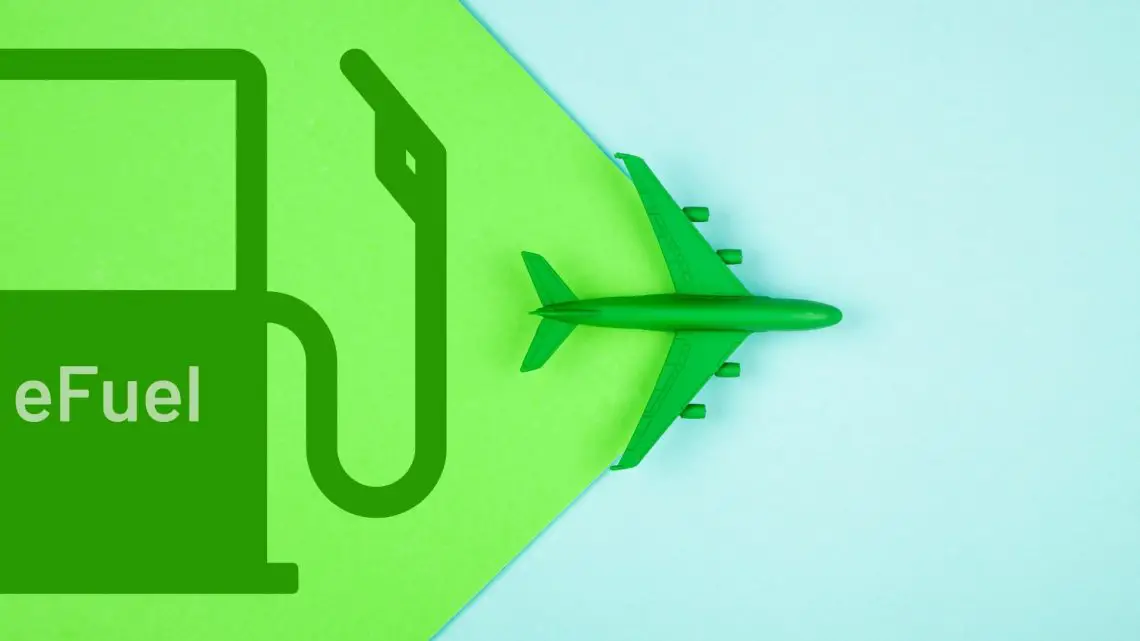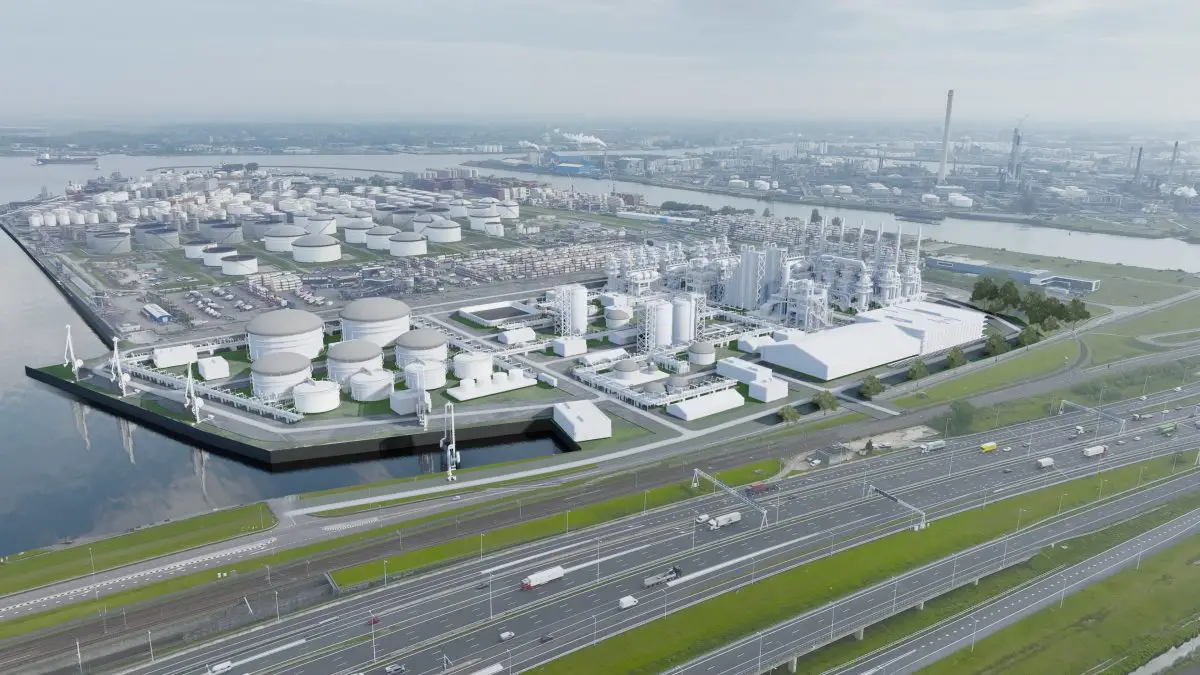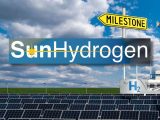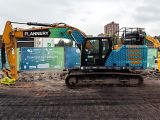
Honeywell’s Tech and Worley’s Expertise Drive Power2X’s eFuels Innovation
February 7, 2025Power2X’s eFuels Rotterdam Project Leads Innovation in Sustainable Aviation Fuel Production
Power2X, a pioneer in the green energy sector, has taken a major step forward with its eFuels Rotterdam project, a large-scale production facility designed to deliver sustainable aviation fuel (eSAF) and ultra-low carbon fuels. The project has brought together three significant players in the energy space—Power2X, engineering firm Worley, and technology giant Honeywell. Their combined expertise and innovative approach aim to make meaningful progress in reducing the carbon footprint of the aviation industry while aligning with Europe’s growing sustainability mandates.
Advanced Technology at the Heart of the Project
Central to the eFuels Rotterdam project is Honeywell’s eFining™ methanol-to-jet processing technology, which will enable the conversion of green methanol into eSAF. This technology uses green hydrogen—produced from renewable energy and water—and biogenic carbon to create methanol, which is later refined into sustainable jet fuel. The beauty of this process lies in its ability to significantly reduce greenhouse gas emissions while ensuring compatibility with existing aviation infrastructure.
According to Honeywell, their eFining technology can cut emissions by 88% compared to conventional jet fuel. Additionally, it produces a “drop-in” fuel, meaning it can be blended seamlessly with traditional aviation fuel without requiring aircraft modifications. This ensures broad applicability across commercial airlines and offers a practical solution as the aviation sector transitions toward decarbonization.
The Role of Worley in Bringing the Project to Life
Worley, a global engineering and project management firm, has been entrusted with managing the foundational phases of the eFuels Rotterdam project. This includes delivering a comprehensive Class III estimate and supporting the early project design phase. Their involvement is crucial in defining the Front-End Engineering Design (FEED) and subsequent execution strategies to minimize technical and financial risks, enhance CAPEX (capital expenditure) accuracy, and develop an efficient project schedule.
This collaboration reflects Worley’s growing experience in green energy infrastructure projects. Notably, their expertise in large-scale engineering ensures that the eFuels Rotterdam project will meet its planned milestones and support Power2X’s ambitious vision for a cleaner aviation future.
Sustainable Aviation Fuel and Its Role in Reducing CO2
Sustainable aviation fuel, such as eSAF produced by Power2X, is a critical tool in the global effort to reduce carbon emissions. SAF is engineered to cut lifecycle CO2 emissions by up to 90% compared to traditional jet fuel. Given that aviation accounts for a significant portion of global greenhouse gas emissions, eSAF represents a necessary evolution for future-proofing air travel.
The importance of SAF is underscored by the European Union’s ReFuelEU Aviation Regulation. From 2030, this regulation mandates increased utilization of SAF, including synthetic fuels like eSAF, to meet the region’s decarbonization targets. Once operational, the eFuels Rotterdam hub is projected to contribute 40% of Europe’s required eSAF supply volume, marking a pivotal role for Power2X in the continent’s clean energy transition.

Power2x Advario eSAF Hub
Timelines and Impact
The Rotterdam facility is expected to commence operations by the end of this decade. With a production potential of over 250,000 tonnes per year of eSAF, the project will have a lasting impact on addressing Europe’s carbon reduction goals. It will also bolster supply chains and pave the way for similar initiatives worldwide.
Meanwhile, the project is progressing in its planning and early engineering phases. Power2X’s partnership with Worley ensures that execution roadmaps are established with precision, while Honeywell’s advanced technological capabilities bring innovation to the production process. This synergistic approach increases the likelihood of meeting ambitious timelines and achieving a successful launch.
Unlocking Practical Applications for a Sustainable Future
The eFuels Rotterdam project is more than a technical achievement—it represents a potential blueprint for applying innovative energy solutions globally. By leveraging green hydrogen and redefining how fuels are produced, it demonstrates that cleaner alternatives don’t necessarily require sweeping changes to existing systems.
For industries and governments looking to reduce emissions today, projects like this signal practical pathways toward achieving climate targets. Scaling this kind of technology and applying it in different regions could help other hard-to-abate sectors, such as shipping or long-distance transport, transition to sustainable energy sources.
Reflecting on What This Means for Today and Tomorrow
While the eFuels Rotterdam project won’t be operational for several years, its progress offers actionable insights today. Investing in sustainable technology requires collaboration across industries, bold regulatory frameworks like the EU’s, and the willingness to develop solutions at scale. These lessons are immediately applicable as the world seeks sustainable answers to its most pressing challenges.
By implementing forward-looking technologies like eFining, we can achieve the dual goals of environmental responsibility and commercial viability. Safeguarding the future of aviation—and the planet—depends on countries, companies, and communities alike taking steps today to support innovation in clean energy. Through such efforts, sustainable aviation fuel becomes not only a possibility but an integral part of tomorrow’s transportation landscape.



 With over 15 years of reporting hydrogen news, we are your premier source for the latest updates and insights in hydrogen and renewable energy.
With over 15 years of reporting hydrogen news, we are your premier source for the latest updates and insights in hydrogen and renewable energy.
Please go to carbonengieering.com and read the section on “Air to Fuel”. Then understand that this technology was invented may years ago and Big Oil has been suppressing it since they understood it would mean the end of oil.
A CE DAC can capture 1 million tons of CO2 per year. OXY Petroleum is building a 1/2 scale model of one right now in Texas. They will use the CO2 for enhanced oil production to squeeze out the last drop rather than to produce a drop in ready fuel the will burn 90% cleaner in any ICE in the world.
We could build many many hundreds of these 1M ton DAC and A2F plants in the next 10 years if the subsidies for drilling for oil were ended and put towards oil companies building plants that would clean green house gas from the atmosphere produce a sustainable ICE fuel.
Good on the EU and Worley planning to do a little bit of something similar by the end of the decade, but this is a “Don’t Look Up” moment and we have to move faster!
Bob.